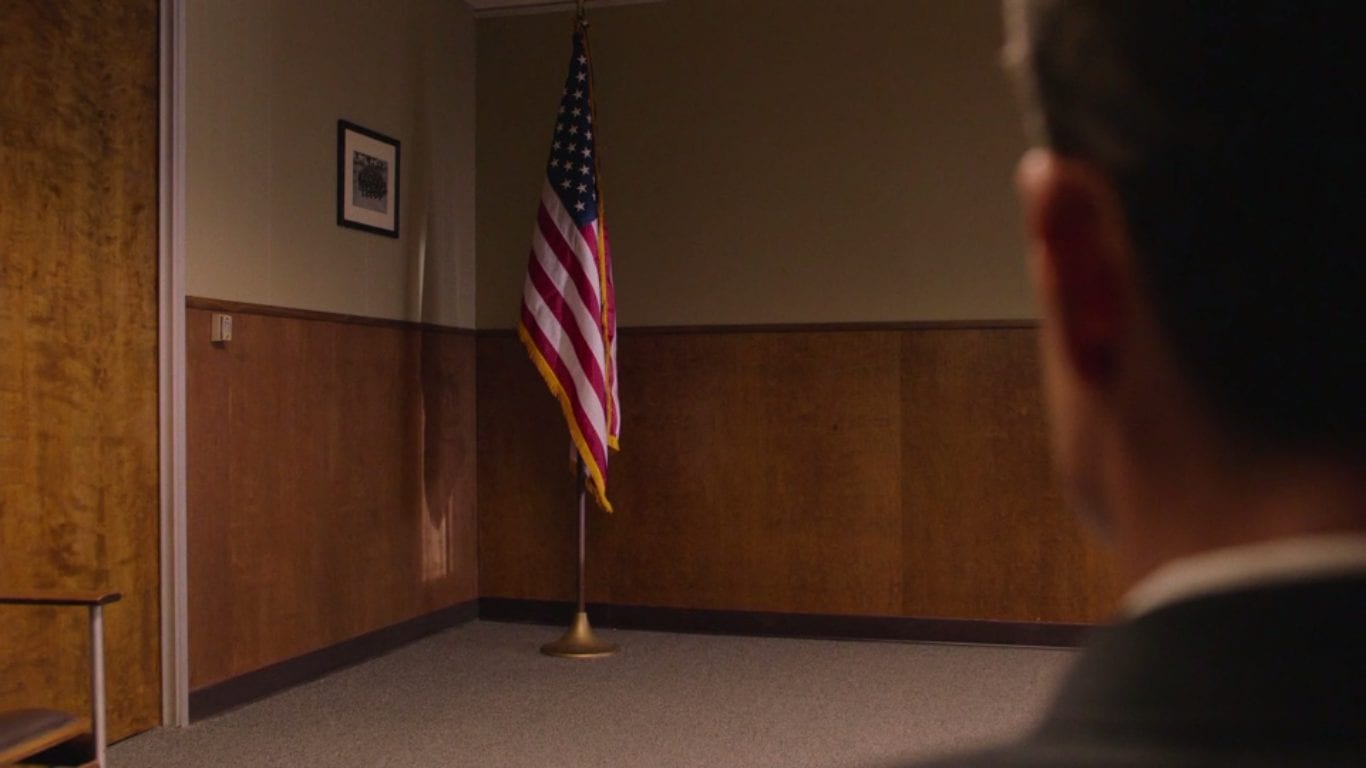If David Lynch can follow up Twin Peaks: Fire Walk With Me with Lost Highway, then Scott Ryan can surely follow up his phenomenal book on Twin Peaks: Fire Walk With Me with The Fist of Love, his new book on Lost Highway right? While the order of Scott’s books on the work of Lynch was a mere coincidence, make no mistake about it, The Fist of Love is a must own book for fans of Lynch’s work and not necessarily just fans of Lost Highway. I had the privilege of being the first person to read Scott’s new book and as you’ll see in our interview here, he was successful on several fronts but perhaps most notably, in writing a book that uncovers something about the entire body of David Lynch’s work and also, revealing more about the man himself.
AG: Why Lost Highway? You mentioned in The Fist of Love that the 25th anniversary of the film was on your mind and that you obviously did an issue of the Blue Rose Magazine about the film. I found it interesting that you went from Fire Walk With Me to Lost Highway, just the same as it appears in the chronological order of Lynch’s films. What was the moment when you’re like, I’m doing a book on Lost Highway?
SR: I will say I hate that I’m following Fire Walk With Me with Lost Highway. I wish that I wasn’t. You know, I didn’t even want to do a Lynch book. Fire Walk With Me was the first time I did a Twin Peaks book. But you know this better than anyone—as a small guy, in the big world of entertainment, you gotta go with what you can do.
I almost don’t even choose my books. I want to write about art and I love interviewing. I gotta take what I can get sometimes. Because I did the book on Moonlighting, I became friends with Glen Gordon Caron which is insane to me. He created Moonlighting and he’s the reason I’m an author. He also did Medium with Patricia Arquette and there’s nothing I won’t ask for. And so I said, look, I’m a huge David Lynch fan. Do you think you could introduce me to Patricia so I can try to get an interview? He sent this beautiful email to her and said very nice things about me. So she agreed to do an interview and and then Natasha said yes, Natasha Gregson Wagner. If you’re a kid from the ’90s, you know, that’s a huge get. She was in Two Girls, A Guy & A Pizza Place—are you kidding me? Then I got Balthazar and I had three out of the four leads, so, this is like an assignment for me. It doesn’t mean I don’t love it because I do love The Fist of Love. Since I didn’t have that passion for Lost Highway that I have for Fire Walk With Me, I could really study it and and not feel it, if that makes sense? If I’m talking to Sheryl Lee, that’s too crazy for me. She’s Sheryl Lee! Here, I don’t have that. Like I admit in the book the first time I ever watched Lost Highway in my life was when we were working on it for Blue Rose Magazine back in 2018 or 2019, so it doesn’t have a history with me.
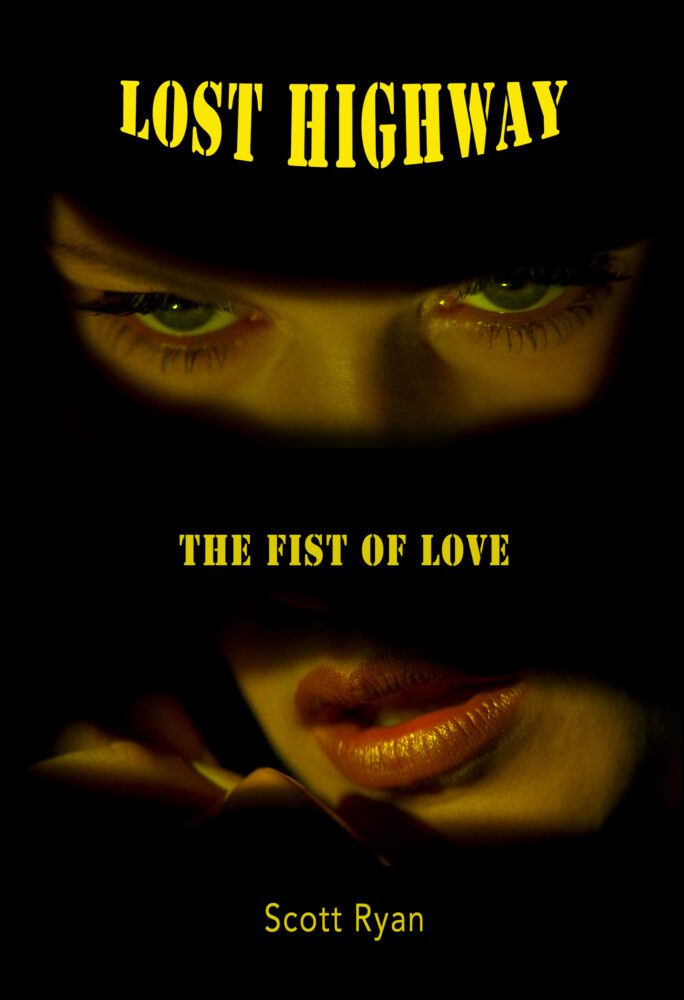
AG: As writers, we can be typecast in a sense, where people always want to read the same stuff from us. Did you fear that at all when deciding that this was your next book, like am I setting myself up to be a Lynch writer forever?
SR: A ton of fear, yes, you know, it’s not what I want to be… But my next book, which I’ve already started and I’m in the middle of writing now, is about movies made in the ’90s, and it’s gonna be a wider thing, but it’s kind of funny because you know what two movies were made in the ’90s? Lost Highway and Fire Walk With Me. Of course he also did Wild at Heart and The Straight Story in the ’90s. He made the most movies in that decade. But I did not choose Lost Highway. Lost Highway chose me just because everyone said yes and Bill Pullman’s people even said yes, but then they just never got me him for The Fist of Love.
AG: In the third chapter of the book, you’re examining the script and you’re comparing it to what we see on screen. There’s a lot that I don’t want to specifically mentioned here because I think there there’s some of the real gems of the book, but maybe just kind of give an example of something that in that, that research that really stuck out to you in terms of changes from the script to what we saw on screen eventually.
SR: I don’t think you would have a missing pieces type thing from Lost Highway. It’s pretty much what they did and that’s what Sabrina said as well. That being said, there are of course differences because there always are in films. There was a scene in the morgue and the doctor has got these beautiful women next to him and then there’s this gross dead body. He throws a cigarette on the ground and you just hear everything while the camera stays on the cigarette and they kind of walk around and it just seemed like it would have been a very interesting shot. And Deepak, however… he does tell a story about them filming that scene and how crazy it was for everyone to try to figure out how to keep the cigarette burning. That is probably the one for me that I bet you that had that been shot, we’d all still be talking about.
AG: You have a distinct voice as a writer but your voice changes in that interview with Debbie Zoller. It I don’t know if emotional is the word that I want to use, but that is how it feels.
SR: Well there always is an interview in any project that does break you down. It isn’t about Lost Highway. It’s the risks that this woman took with her career. I mean the story about Star Trek really got to me. It’s probably hard for people today to think about how popular Star Trek: The Next Generation was in the ’90s. But it was the place to be; it was, you know, the White Lotus of its time. She’s got that job and there they’ve got Deep Space Nine, they’re doing movies and she says that could’ve been my whole career and she’s right. She could right now be working on Star Trek Discovery. She said I gotta do something different and I’m gonna take a chance and I want to go do this and just think of the successes. So as a person she moved me because she was willing to take chances. And, I hate incompetence. And we live in a time of incompetence. And when you meet someone who truly knows their craft, I am so… I come alive because I’m like, oh here it is. There is confidence to me. She’s the Ron Garcia of this book. That’s just like, oh my gosh, if you wanna know about David Lynch you’re not gonna get it from the actors. I feel like that’s where people think you’re gonna get it from and you’re not, you’re gonna get it from the crew.
AG: Deepak Nayer is another great example of that. Perhaps my favorite story in The Fist of Love is the one about a bet with Lynch. That was the one that had me cracking up hysterically. Any particular stories stand out to you?
SR: I don’t think I’m exaggerating when I say, I don’t think he answers one question I asked him. He was not a question and answer guy and I had specific questions. But to me those little moments and stories are when you really learn about David Lynch.
I loved asking Peter Deming about filming in the hallway. You can just see that scene and some people might not even think about it. But there’s a scene in the movie where Bill Pullman just walks down the hallway and disappears and hearing about how they had to get that shot for David is really interesting to me.
Sabrina tells an incredible story about the sandstorm and how that damaged the film up till 2022. They were still removing the sand from the actual negative. They were being pelted with it and it was dangerous and intense. Peter Deming says it looks like a special effect and it’s not but it made this beautiful effect on the film.
AG: For the fan who is interested in the artistic side behind the camera, there’s a lot of detail in several of these interviews about what it takes to create these moments that we see on screen that live on in our minds forever. Was that always part of your plan for The Fist of Love, to provide a lot of insight into the technicalities behind the screen?
SR: It was always the plan. I don’t find it as interesting to get into what David Lynch means. You know, I just can’t imagine writing a book that explains everything for you because it’s really up to you. Now that being said I actually do give a theory for Lost Highway more so than I have in other things, but it’s mostly because, I think that’s what Lost Highway is. I don’t even think it’s a theory, I wouldn’t even necessarily say I’m putting forth some like, gigantic idea. I wanted to know how this person serviced the film. That’s of interest to me, whether it’s the actor… You know, it would have been nice to get the writer, but Barry Gifford has stopped talking about working with David Lynch, so I couldn’t get an interview with him, but it’s like to me it’s not about spoiling the illusion, it’s about learning how you do your job because again it goes back to I love competence.
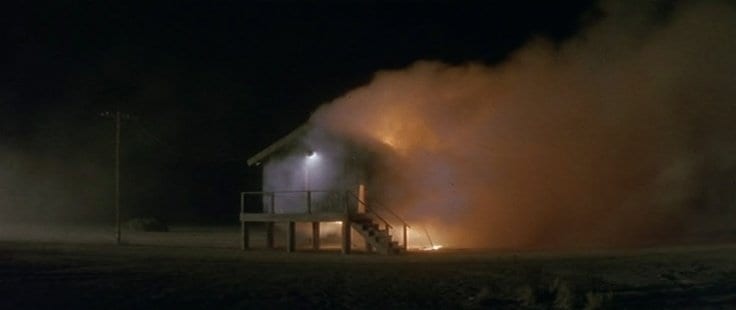
AG: Sabrina Sutherland’s story is a true standout of the book. I think in our minds, we want to romanticize that her and Lynch have had this super tight relationship for 20 years. And she really tells a different story here.
SR: I love and respect her so much. And I think that what she did on The Return—I don’t know what you can compare it to, I mean, possibly whoever produced the Lord of The Rings trilogy, but even they had some time in between. I just find her to be incredible. And she was really open with me that day. You know, I don’t think I’ve interviewed anyone as much as I’ve interviewed Sabrina and I’m lucky and honored to have that. I feel like, Sabrina understands what I try to do, you know? So she felt comfortable with me, I think a little more open than than normal in this interview, really talking about their relationship. I don’t remember, but I think we’re on the phone for two hours. I mean it was a long interview and she has so much information about being there… but during Lost Highway, I mean, she wouldn’t go so far to say that David Lynch didn’t like her, but she does say that when he saw her, he always made a grimacing face; it’s just the sight of her made him do that. And yeah, I think people will probably be surprised, but that’s where they started out.
AG: Her part of the book in a lot of ways is the emotional core, coupled with certain things that Patricia Arquette says and we’ll get into that here in a minute. But her journey with Lynch really sticks out to me as a highlight of this book. And I think that it’s something that Twin Peaks fans especially are going to realize we want to get into because it changes the way that we’ve romanticized that relationship.
SR: I agree. I also think that people look at Sabrina like a gatekeeper to Lynch and I think this will show that that isn’t true. I mean, she’s certainly like all of them—they all protect David, that he must have a personality that makes you want to protect him—but she is not more powerful than David Lynch as far as what is occurring, you know, it’s still him. I think it’s easy for people to blame Sabrina for things. I never have, I don’t feel that way about her. She’s always been open and kind and to me and is the only person in the entire Twin Peaks community that has purchased every single copy of the Blue Rose and every single book we’ve done. I would give her these things but she’s never asked for anything for free. And to me that says so much about her as a person and it’s a big reason I respect her so much for what she does.
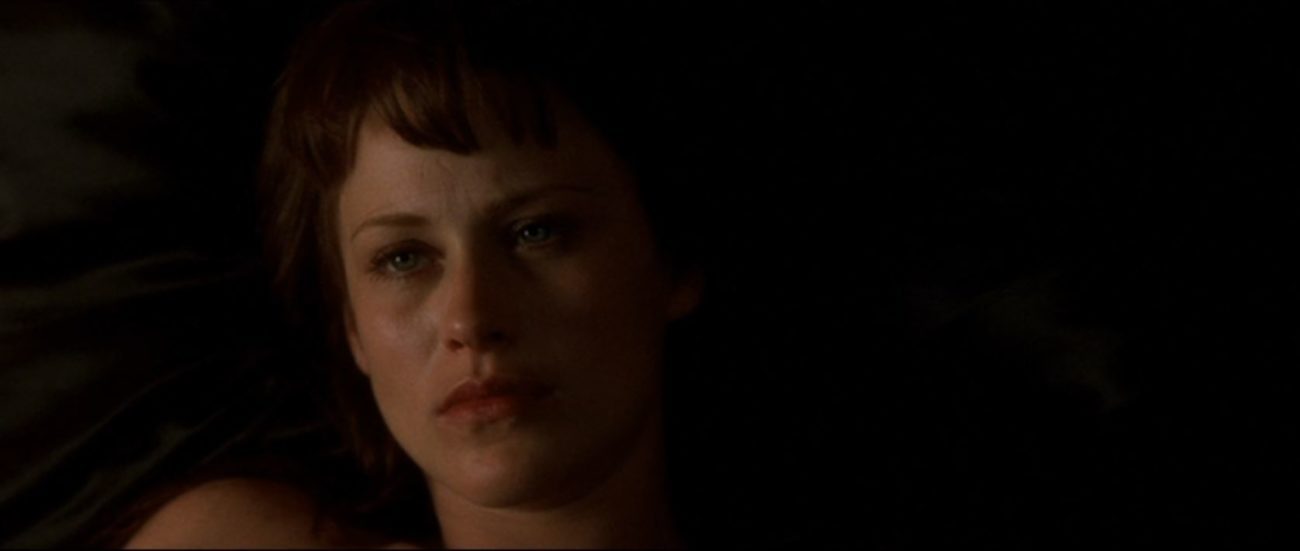
AG: Let’s shift gears over to Patricia Arquette. She speaks heavily of misogyny and she speaks of the perception of her nude scenes and I love her take on it. With these stories, were you familiar with them prior to interviewing her?
SR: I was very familiar with it and I will say that I was really nervous. I only had 30 minutes with her. I’m a professional and if they tell me you only have 30 minutes, I only take 30 minutes. I knew I had to ask her about her nudity because I had seen the interviews that are in the documentary that’s now been rereleased, Pretty as a Picture. She had said something that really stuck with me, because she said she called David Lynch Satan, you know, you don’t really hear Twin Peaks actors telling stories about calling David Satan. It was because she was so uncomfortable doing new things. So I knew I had to bring it up but I thought how am I gonna in 30 minutes get her to trust me and not come off like some creepy guy who’s asking these questions. Lucky for me, she brings up the whole thing really early and I didn’t have to. So it worked out good in that sense for me, but she was so kind and so smart. She understood that character frontwards and backwards, she understood the importance of the nude scenes, she knew why they mattered to the character and the film. So it was definitely a highlight of my interviewing career, getting to talk to her.
AG: Some of the themes from her interview carry over into Natasha’s interview. And I had jotted down the note, powerful women—that phrase specifically comes up in Natasha interview and I don’t know if that’s a phrase that people associate with Lost Highway. But do you think after reading these stories that perhaps that public narrative might change that this film might be more associated with the idea of powerful woman?
SR: Unfortunately, no. Its funny how much I’ve covered this because it was the genesis of the Women of Lynch book that David Bushman and I edited. I’ve always thought it is insane to me that male critics couldn’t see these powerful strong characters that David Lynch creates. I mean, Isabella Rossellini, Sheryl Lee, Naomi Watts, Laura Dern, Patricia Arquette—he should be known for this. But he’s not and it’s not gonna change because everyone just assumes if this person is taking off their clothes, they have no power and they’re just not listening to the story. You know, Patricia Arquette’s character is doing the best she can to get out of the situation she’s in with Mr. Eddy and she survives and really overtakes them, and pretty much all the men in the movie.
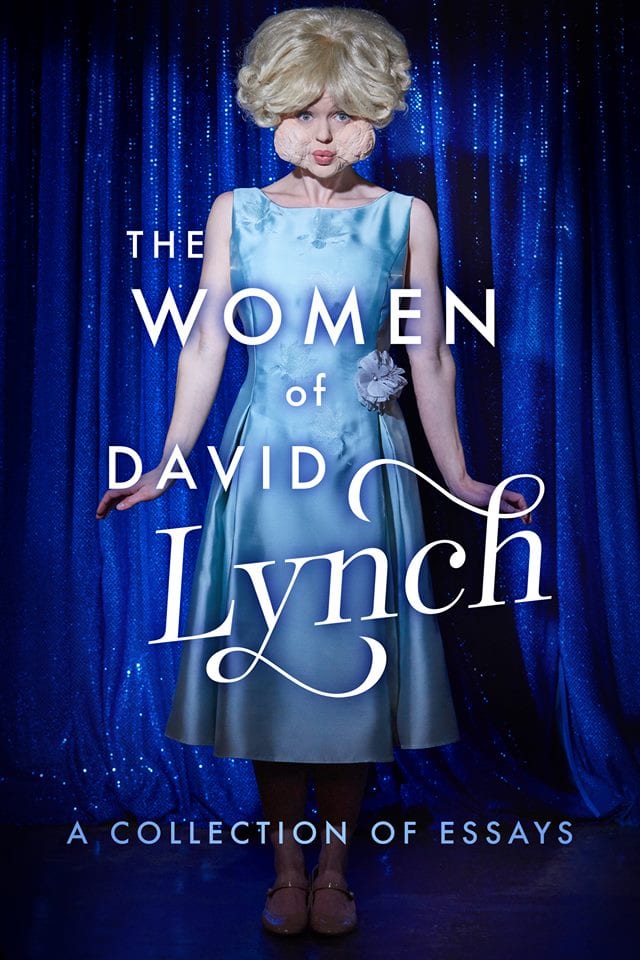
AG: Patricia is kind of the forgotten name on that list you just mentioned. I think we we tend to move from Sheryl to Isabella Rossellini to Laura Dern and a lot of times we leave out Patricia Arquette, which brings me to a big theme of your book that Lost Highway is the most forgotten Lynch film. At first I wanted to challenge you on that. Then I read your film by film description of why each film was more remembered than Lost Highway. My answer was Inland Empire until I got to your description and I thought he’s got me there. So my question here is, do you think there will ever be a time when Lost Highway is not the most forgotten Lynch film?
SR: I don’t. From my perspective, the Lost Highway issue of the Blue Rose, is the lowest selling issue. This book is not flying off the preorder shelves in the way that Fire Walk With Me did, or Conversations with Mark Frost, that are both on Twin Peaks. I mean people love their Twin Peaks. And I just don’t think there are fans of Lost Highway in droves. Its because it’s a hard film. It really is, it’s difficult. But one of the things that I think and by all means, here you go Internet, come and get me: It’s the best ending of a David Lynch film. I mean, I think I say in the book it’s a cracker jack ending. He made a movie that ends in a car chase. Think of the last 20 minutes of The Return where we’re just sitting there watching them drive and it’s so slow. Or even Mulholland Drive—that ending is just slow and its mood is heavy. Lost Highway once Bill Pullman comes back, it’s just bing bang, bang—that movie is flying. Go ahead and argue with me on a better ending in a Lynch movie than Lost Highway. I think it’s so satisfying.
There’s a tightness to Lost Highway. He doesn’t ever go off the track which I think is so impressive. There’s not a ton of tangents and that’s part of why we love David Lynch movies for the tangents, but that’s something about Lost Highway that I didn’t notice until I studied it. This is my favorite Lynch film because it just moves.
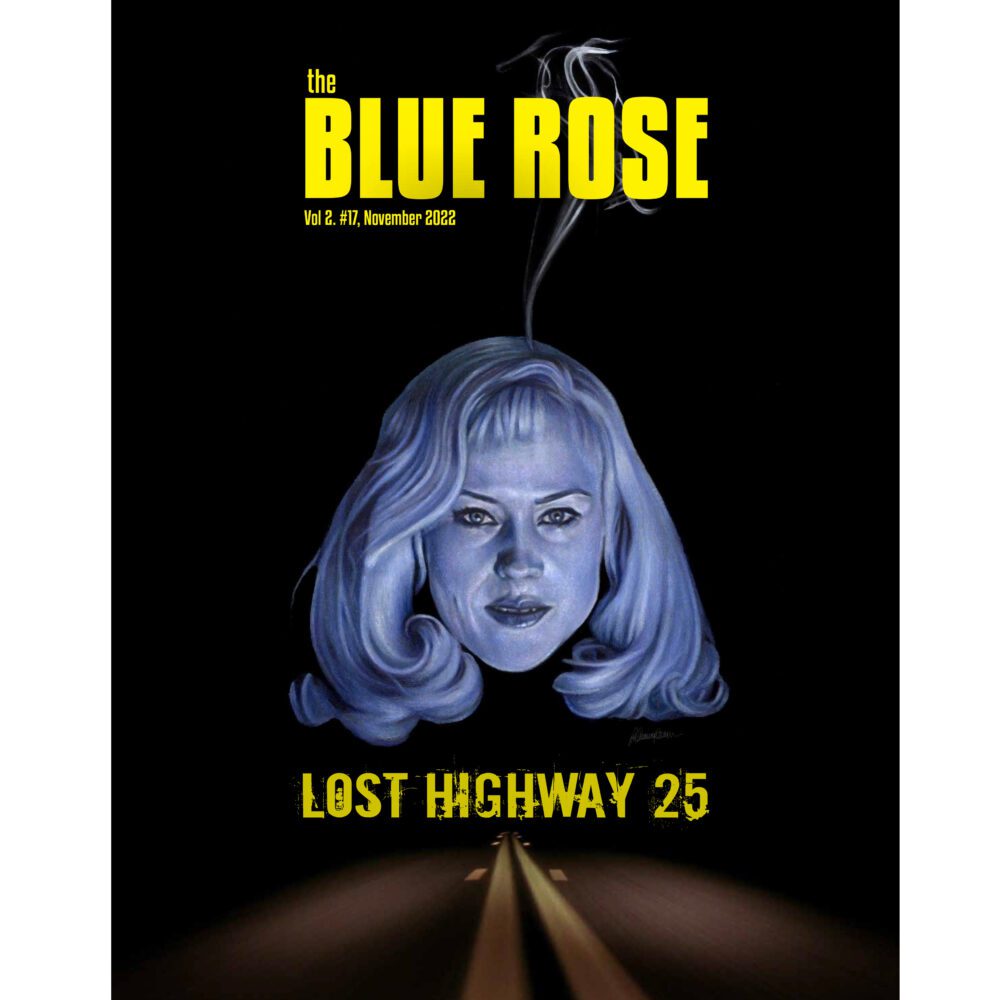
AG: Where did the idea come from for the tribute to Jack Nance at the end of The Fist of Love?
SR: Well, honestly, I didn’t think I had like a killer ending to this book. In Fire Walk with Me, that whole book is leading you to the Sheryl Lee interview and I had always set the book up that way. Well, in this book, all I could do was hope that I was getting Bill Pullman and he was gonna give me something that was good enough to be the ending. I’ve always had the last chapter slated as Bill Pullman. It didn’t happen. I was already editing and working on everything else. I realized that there wasn’t that much about Jack Nance in the interviews with people. And I thought—that’s the emotional ending for this book because this is the last time with Jack Nance and Lynch worked together and he had been there from the beginning of Eraserhead.
I would never say that I’m friends with any of the people that I interview or the people in the world of Twin Peaks but I am real life, honest to goodness friends with Charlotte Stewart. I can always call her at any time and we talk and you know, she’s my buddy. She knew Jack so well, so I called her and asked her to talk to me about Jack. She gave me these great stories and then I emailed David Lynch and Mark Frost to get quotes from them and some cast members from Twin Peaks and tried to just get some some love back for Jack. Of course Mark Frost could not be a greater guy. He gave me something beautiful in like 10 minutes. I’m still emailing people and I got something wonderful from Mark Frost. I can just never praise him enough as a person and as a creator. So I think it’s a nice ending to the book.
AG: In closing, what did you wanna say to people who are reading this?
SR: I don’t have the ego to think that I can change anyone’s mind about a piece of art. That would be futile, a waste of time for anyone to do that when you write a book. But I’m hoping that people who maybe just haven’t thought about Lost Highway the way they think about Blue Velvet or Mulholland Drive or Fire Walk With Me, that they’ll just give it another look, and give it a chance. Lynch really is saying something here, and it’s beautiful. It really is a beautiful film and maybe Patricia Arquette was right when she said it would take years for people to appreciate this film. But I think here and now is the time to look at it.
The Fist of Love is available for preorder here.


